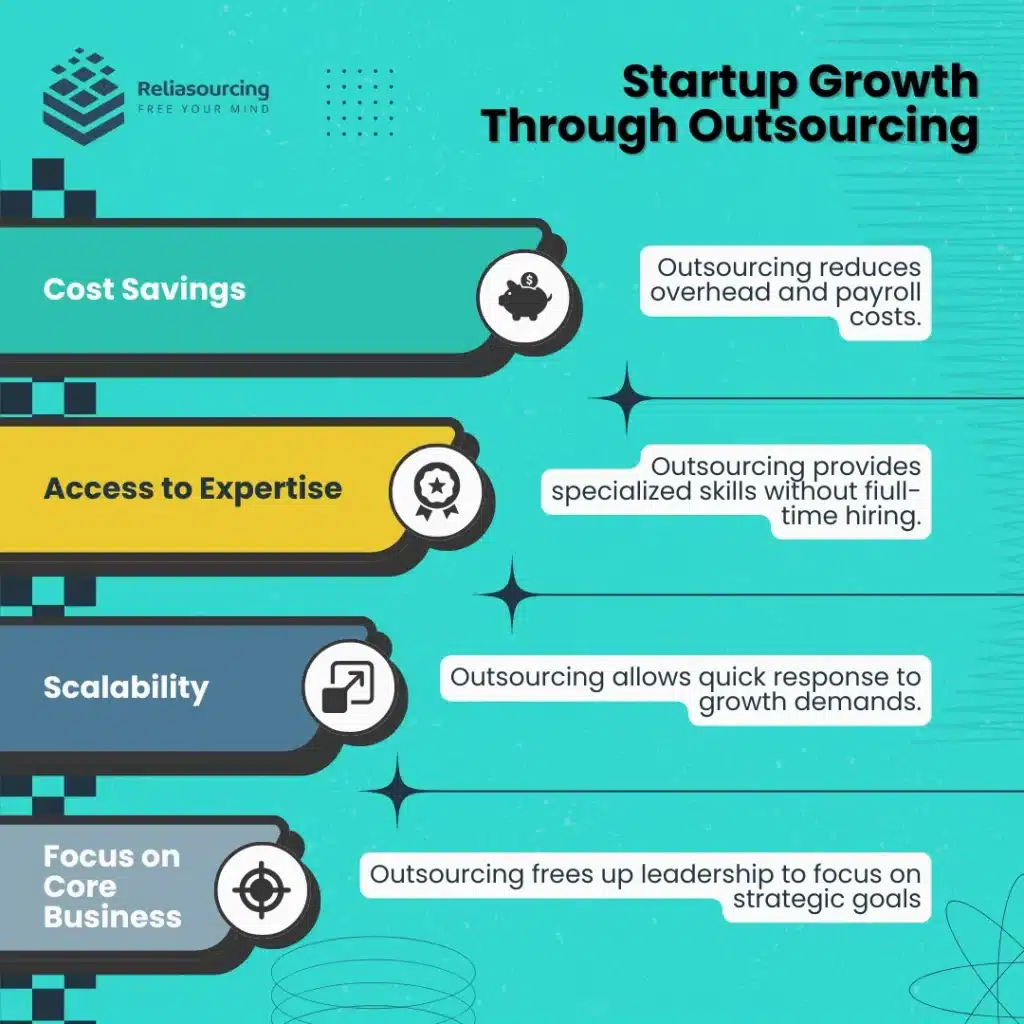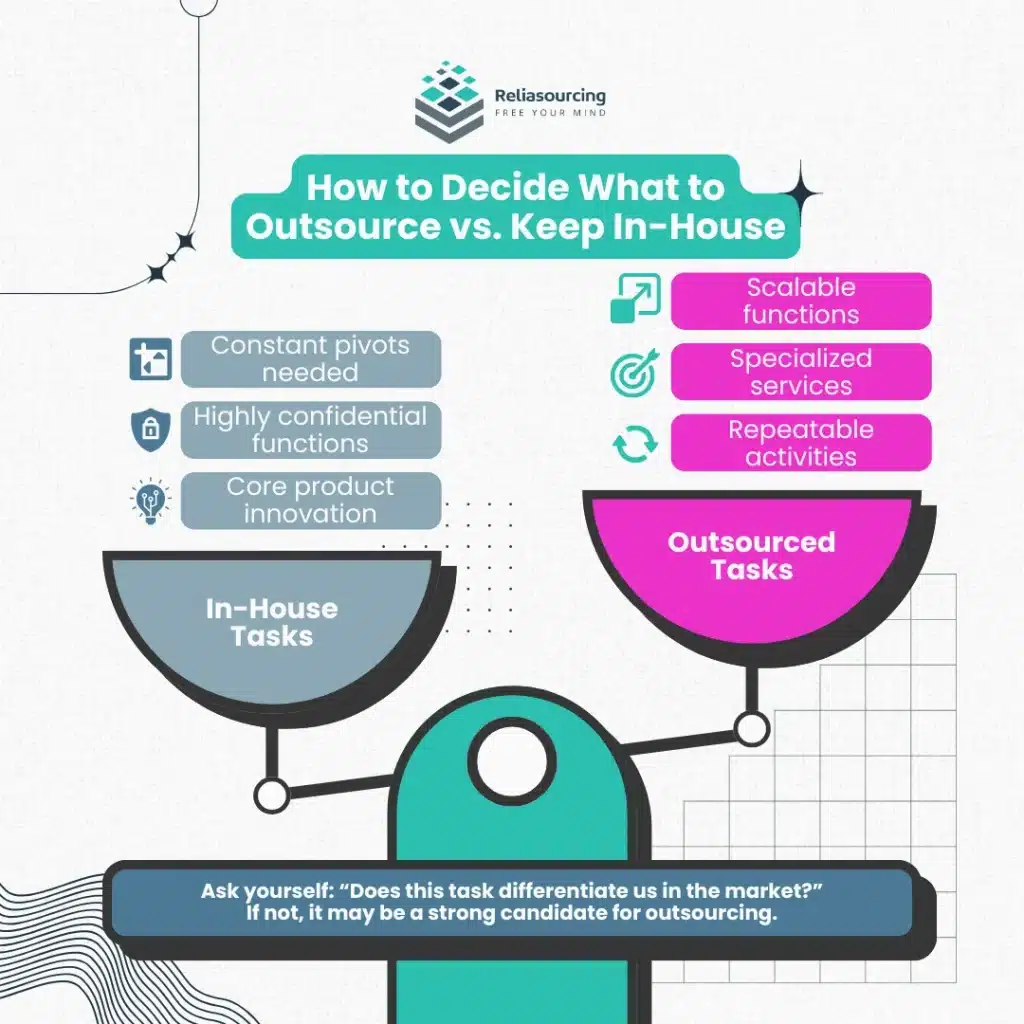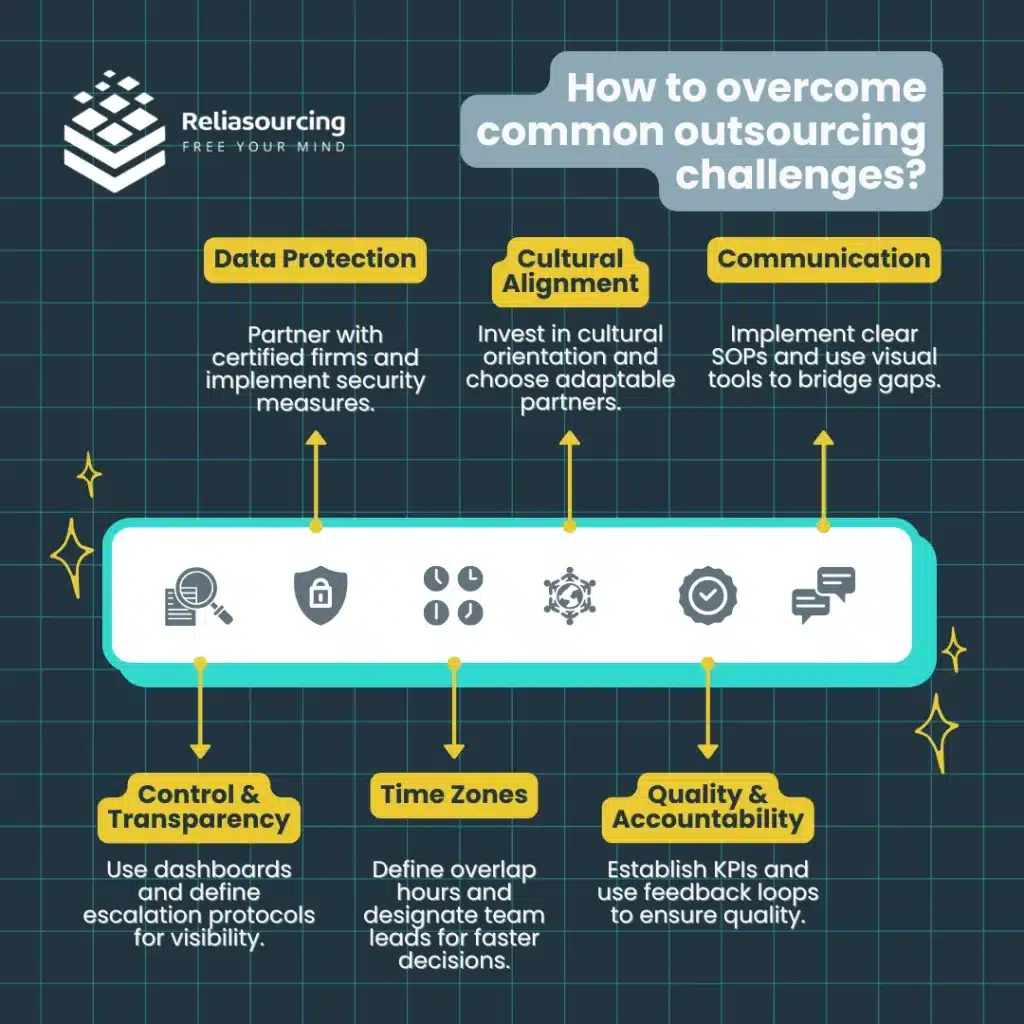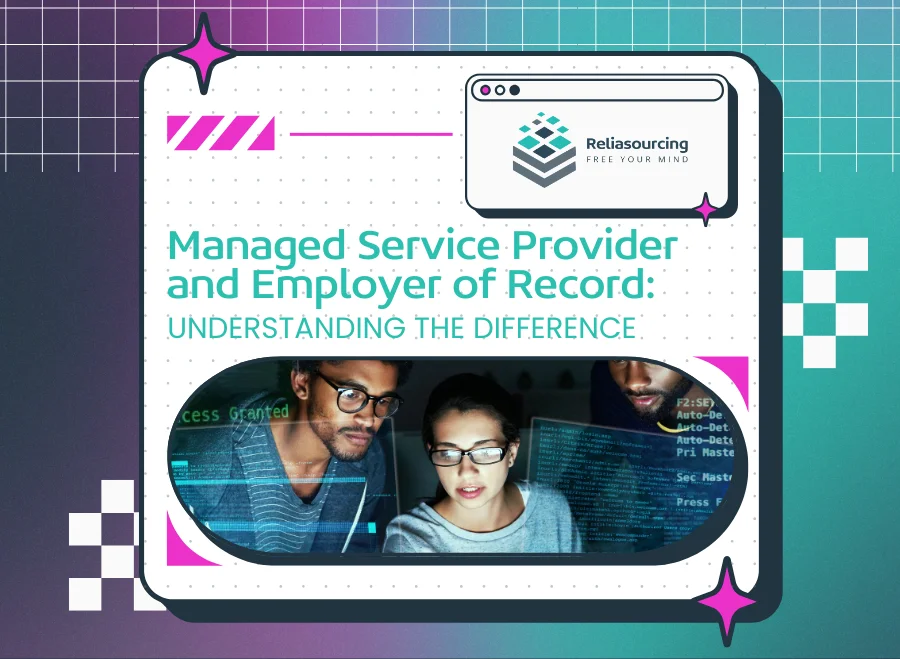Startups are designed to move fast, but scaling quickly often puts immense strain on resources, teams, and infrastructure. Agility, though vital, becomes a double-edged sword when internal operations can’t keep pace with product development or market demand. And so, outsourcing for startups presents a paradigm shift to enable businesses to extend their capabilities without ballooning overheads.
Building agile teams is critical for startup founders looking to gain momentum and achieve growth quickly; sometimes, an in-house team won’t cut it to meet the growing demands of a growing business. The ability to tap into high-performing offshore talent, like those in the Philippines, empowers these startups to expand operations, test new ideas, and serve more customers while staying focused on their core mission.
This guide outlines why outsourcing accelerates startup growth. We’ll break down the benefits, explore practical examples, help you navigate the partner selection process, and demonstrate how Reliasourcing supports startups in scaling efficiently.
Why Startups Should Consider Outsourcing

The startup ecosystem is unforgiving. Every single decision greatly contributes to the overall trajectory, and to make one wrong move is to risk it all tumbling down. That’s why founders consider outsourcing to expand their teams, to operate lean, scale quickly, and focus on what matters most.
Cost Savings
Startups need to stretch every dollar. Hiring in-house teams comes with hidden costs: office space, equipment, HR overhead, benefits, taxes, and more. Outsourcing eliminates many of these costs by up to 70% while still granting access to highly skilled professionals, allowing early-stage ventures to reserve capital for innovation, marketing, or technology investments instead of payroll bloat.
Access to Expertise
Startups can access expert professionals without the constraints of full-time hiring. Founders can utilize specialized skills, such as data security, AI-driven development, or regulatory compliance, without long-term financial commitments. Quickly onboarding skilled experts allows startups to save time and improve the quality and speed of their execution.
Scalability
Startups face unique growth patterns: rapid user spikes, sudden pilot programs, investor-driven expansions. Hiring internally to meet short-term demands is risky because startups can end up overcommitting to long-term hires they don’t need, draining cash flow and diverting focus from product and market. Likewise, it’s also slow, given that the lag in recruiting, training, and onboarding can also cause missed opportunities, especially in industries where timing is everything.
Outsourcing allows you to respond to these needs almost instantly. If the product gains traction, you can easily onboard a small team for a beta rollout and scale to full coverage in weeks.
Focus on Core Business
Entrepreneurs need to focus on building the company and growing it further, not managing payroll systems or answering support tickets. Delegating operations like bookkeeping, customer care, or lead generation allows leadership teams to prioritize innovation, vision, and product-market fit—simply put, the leaders get to actually lead.
Real-World Success Story
One startup in the loan processing industry faced severe capacity bottlenecks. As their user base surged, so did the volume of loan verification and customer inquiries. Rather than burn out their core team or delay responses, they partnered with Reliasourcing.
Starting with 9 outsourced representatives, the team quickly scaled to 46 in less than two years. The impact was measurable: a 230% increase in operational efficiency, significantly reduced processing time, improved loan approval rates, and a sharp drop in first-payment default rates. Most importantly, the startup retained its reputation for reliability without overstretching internal operations, proving that outsourcing opens a path to success for growing startups.
Types of Tasks Startups Can Outsource

Unlike stereotypes, outsourcing is more than just call centers or IT support; it now spans a wide range of critical business processes that empower startups to offload entire workflows or individual tasks depending on their maturity, goals, and funding stage. Both in-house and outsourced teams have their strengths and weaknesses, so here’s a more detailed look into the work you can outsource:
1. Administrative & Back-Office Support
Tasks like calendar management, travel booking, expense tracking, and data entry may be essential but don’t require in-house attention. Virtual assistants and remote admin teams can handle these efficiently.
2. Customer Support & Success
Outsourcing customer service, such as phone, email, live chat, and tier 1 technical support, can ensure 24/7 coverage without requiring round-the-clock local staffing.
3. Software Development & IT Operations
Software development and IT operations are among the most valuable areas startups can outsource, especially when it comes to web and app development, cybersecurity, and cloud computing.
4. Content, Marketing & Design
Marketing is time-intensive. SEO, content writing, social media management, ad campaign optimization, and graphic design can all be outsourced, giving startups a full-funnel marketing team without hiring multiple specialists.
5. Sales & Lead Generation
Outbound prospecting, appointment setting, cold calling, email outreach, CRM maintenance, and even sales development are some of the services that can be outsourced.
6. Recruitment & HR
Remote recruiters can source, screen, and onboard candidates, while outsourced HR admins can manage employee records, payroll, and compliance, making it especially helpful when operating across countries.
How to Choose the Right Outsourcing Partner
Choosing the right outsourcing partner is one of the most critical decisions a startup can make. The wrong fit can slow you down; the right one can become a true extension of your team. Here’s how to evaluate and engage the best provider for your growth goals:
Define Success Before You Begin
Start with clarity: What function do you want to outsource? What outcome are you looking for? How will success look in three, six, or twelve months? Clear goals ensure better alignment and enable meaningful performance tracking.
Prioritize Industry Experience and Compatibility
Your outsourcing partner must not only know the domain, they should fit your startup’s pace and culture, communication style, and growth mindset. When evaluating a provider, ask:
- Have they worked with startups in your sector before?
- Do they have case studies or client testimonials that demonstrate impact?
- Are they familiar with your space’s tools, platforms, or regulatory needs?
- Do they understand how to collaborate in agile, fast-changing environments?
Additionally, assess cultural compatibility. Do they value open communication, feedback loops, and collaborative problem-solving? Teams in the Philippines, for example, often align closely with Western business values and expectations, making them strong partners for startups. Particularly, Reliasourcing excels at servicing startups thanks to a startup-centric delivery model. Our teams are fluent in English, collaborative, and comfortable with fast-moving workflows.
Due Diligence Is Key
Vet providers thoroughly. Ask for use cases, client references, sample reporting structures, and security certifications. Check for:
- Robust onboarding practices. Ensure they have a structured, client-specific onboarding plan to help new teams ramp up quickly.
- Industry-specific training. Ensure they regularly train staff in tools, standards, and workflows relevant to your sector.
- Data security compliance. Confirm they follow international standards like GDPR or HIPAA and provide documented security protocols.
- Flexible pricing models. Choose partners that offer startup-friendly options like hourly, project-based, or tiered pricing.
Align on Contracts and Expectations
Clear contracts and mutual expectations are essential to successful outsourcing. Use this checklist to ensure contracts and expectations are clearly defined before moving forward:
- Define SLAs. Outline service-level agreements for performance, turnaround times, and communication frequency.
- Clarify Scope of Work. Be explicit about what’s included (and excluded) from the engagement.
- Set Confidentiality Terms. Include NDAs and intellectual property protection clauses.
- Agree on Exit Clauses. Define termination terms and notice periods in case the partnership needs to end.
- Establish Pricing Structure. Decide on hourly, milestone-based, or monthly billing to suit your growth phase.
- Identify Points of Contact. Assign owners on both sides to avoid confusion and streamline communication.
Establish a Clear Onboarding Plan
A successful onboarding process ensures your outsourced team hits the ground running. For example, if you’re outsourcing customer support, your partner should conduct product walkthroughs, simulate ticket responses, and align tone and escalation paths before the team handles a live customer.
Your success depends on how smoothly the outsourced team integrates; that’s why you should clearly define SOPs, create escalation workflows, and agree on tools and meeting cadences. The best partners will handle onboarding collaboratively, with accountability on both sides.
Common Challenges of Outsourcing & How to Overcome Them

Outsourcing can be transformative, but it isn’t without its hurdles. Despite this, many multinational companies outsource to seize the opportunity to optimize their operations. For startups, particularly those in high-growth or early funding stages, navigating these challenges effectively is critical to long-term success. Below is an expanded overview of founders’ common outsourcing issues and practical strategies to overcome them.
Language & Communication
Communication gaps often stem from different expectations, cultural nuances, or a lack of process documentation. Even with English-speaking teams, variances in tone, response time, or business etiquette can create friction.
Solution:
- Use clear, documented SOPs for all recurring tasks.
- Establish a shared vocabulary. What does “urgent” mean, or a “closed” ticket?
- Utilize tools like Slack, Loom, and Notion to communicate visually and asynchronously.
- Schedule regular alignment calls to foster relationship building.
Managing Different Time Zones
While outsourcing allows startups to operate 24/7, differences in time zones can also delay communication or decision-making when unmanaged.
Solution:
- Define overlap hours where both teams are online.
- Designate team leads in both time zones for faster decisions.
- Use project management tools like Asana or Trello to maintain asynchronous productivity.
- Consider rotating shifts if round-the-clock coverage is needed.
Quality & Accountability
Worried about inconsistent results or missed deadlines? These concerns are common when working with remote or distributed teams, especially when quality standards aren’t clearly defined.
Solution:
- Establish key performance indicators (KPIs) and success metrics from day one.
- Use QA checklists, peer reviews, and weekly performance audits.
- Build feedback loops: make room for revisions and coach the team based on real-time insights.
- Incentivize performance by tying goals to rewards or recognition.
Data Protection & Compliance
Sensitive data handling, especially in fintech, health tech, or legal services, requires strong compliance frameworks. Outsourcing partners must prove they can maintain data integrity and adhere to global standards.
Solution:
- Partner with firms certified for data protection protocols (e.g., ISO 27001, GDPR, HIPAA).
- Ensure that contracts include NDAs and liability clauses.
- Implement tiered access, password vaults, and regular audit trails.
Cultural Alignment
Differences in communication style, work ethic, or hierarchy perceptions can cause misunderstandings or misalignment.
Solution:
- Invest in cultural orientation both ways. Educate your internal team about your partner’s working style, and vice versa.
- Celebrate shared milestones and encourage virtual team-building activities.
- Choose outsourcing partners like those in the Philippines, known for their cultural adaptability and a strong affinity with Western business norms.
Loss of Control or Transparency
Startups often fear losing control over key functions or being left in the dark about day-to-day operations.
Solution:
- Use collaborative dashboards that give real-time visibility.
- Define escalation protocols for delays or issues.
- Maintain access to project timelines, status updates, and team productivity logs.
How Reliasourcing Helps Startups Scale Efficiently with Outsourcing
Startups move fast—and so do we. At Reliasourcing, we specialize in helping high-growth, high-potential companies scale with agility, precision, and confidence. We’re built to grow with you, so here’s how we help turn ambition into execution across training, talent, and teamwork:
Built for Startup Agility
Reliasourcing doesn’t treat startups like enterprises. Our services are flexible, customizable, and ready to scale, should you plan to launch a pilot or expand into new markets. Our teams move with you.
Tailored Training and Continuous Improvement
One of our key strengths is our investment in training. With our Manila-based training hub, we tailor onboarding programs based on each client’s unique processes. For our loan processing client, our enhanced curriculum raised CSR pass rates from 42% to 88%, significantly improving resolution time and customer satisfaction.
Rapid Team Expansion
In less than 12 months, we helped one client grow from 9 to 46 fully trained agents, each performing at or above industry benchmarks. Our teams deliver on everything from day-to-day support to specialized functions like loan verification or compliance tracking.
Transparent Collaboration
We believe in transparency and co-creation. Clients meet with our ops leads monthly to refine metrics, update processes, and brainstorm strategic initiatives. Your success is our success.
“Thanks to Reliasourcing my company was able to expand quick and efficiently! They were with us in every step of the way and took care of every need we came across, looking forward to our continued business, highly recommend!”
– Yaniv Gonen, Head of Training Department, CreditSense
Ready to begin? Get in touch with us today, and let’s start scaling your business!
FAQs About Startup Outsourcing
What are the main benefits of outsourcing for startups?
The main benefits of outsourcing for startups include reduced costs, faster scaling capabilities, access to expert talent, and the ability to focus on strategic priorities instead of operational bottlenecks.
How do I ensure outsourced tasks meet quality standards?
To ensure outsourced tasks meet quality standards, define SOPs clearly, establish performance benchmarks, and partner with a provider with a built-in QA framework and proactive communication culture.
Is outsourcing cost-effective for early-stage startups?
Outsourcing is cost-effective for early-stage startups because it provides flexible access to skilled labor without the long-term commitments and overhead costs of in-house hiring, which often include salaries, employee benefits, office space, equipment, utilities, paid time off, and ongoing training, expenses that can quickly overwhelm early-stage budgets.
What are the risks of outsourcing and how can I mitigate them?
The risks of outsourcing include communication issues, inconsistent quality, or misalignment with business goals. You can mitigate these risks by selecting a vetted partner, creating thorough onboarding documentation, and holding regular check-ins.
How do I choose between outsourcing locally vs. internationally?
To choose between outsourcing locally vs. internationally, evaluate cost efficiency, time zone alignment, communication ease, and the talent pool available. International outsourcing, especially to countries like the Philippines, offers a strong cultural fit, excellent English skills, and significant cost savings.
Summary & Final Thoughts
Outsourcing offers startups operational relief while unlocking immense growth potential. The clarity it brings enables founders to focus on product, fundraising, or customer success, making outsourcing a powerful tool for traction, expansion, and longevity.
Reliasourcing is uniquely positioned to help startups at every stage. With proven frameworks, startup-savvy teams, and a reputation for performance, we go beyond staff augmentation. We become your growth partner. Contact us today!









